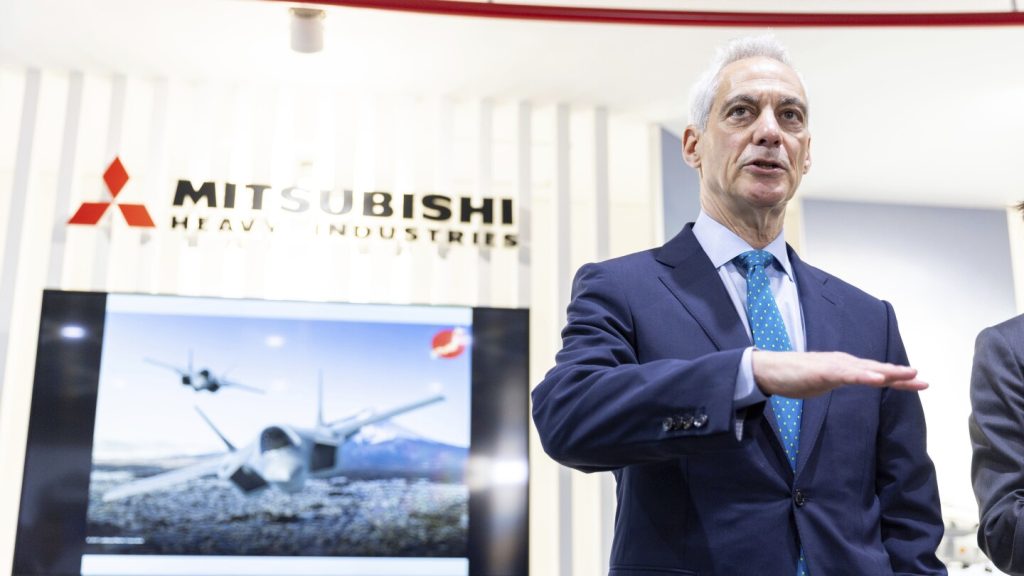The U.S. ambassador to Japan recently called on Tokyo to play a greater role in developing, producing, and supplying weapons to enhance collective security amid conflicts in Ukraine, Gaza, and other regions. Ambassador Rahm Emanuel emphasized the importance of stronger defense industry cooperation between the two allies, as the United States alone can no longer supply all democracies. This call for increased collaboration came after a meeting between Prime Minister Fumio Kishida and President Joe Biden in Washington, where Japan reaffirmed its commitment to being a reliable partner, especially in defense cooperation. The countries are now exploring possibilities for Japan to co-license, co-produce, and co-develop weapons, leveraging Japan’s industrial capability and engineering expertise for the benefit of the alliance.
Historically, Japan had imposed restrictions on arms exports due to its wartime past as an aggressor, resulting in a defense industry with high prices, aging technology, and limited government support. However, under the national security strategy introduced by Prime Minister Kishida’s government in 2022, Japan is ramping up its military buildup and increasing its defense budget in response to threats from China, North Korea, and Russia. Japan has committed to acquiring a counter-strike capability and has already procured 400 Tomahawk long-range cruise missiles. Additionally, Japan has relaxed arms export rules, enabling the sale of lethal weapons to licensed countries and overseas sales of a fighter jet developed in collaboration with Britain and Italy. These changes have allowed Japan to supply Japanese-made PAC-3 missiles to the U.S. for use in Ukraine, replacing those provided by Washington.
Despite Japan’s historical limitations in the arms industry, the country is expected to experience significant growth following these recent shifts in policy. While only four Japanese arms manufacturers are ranked among the top 100 global companies according to the Stockholm International Peace Research Institute, Japanese firms like Mitsubishi Heavy anticipate growth opportunities. Many U.S. allies have been increasing defense budgets and capabilities in response to geopolitical tensions, and the U.S. ambassador stressed the importance of Japan not remaining on the sidelines. Mitsubishi Heavy’s F-35 final assembly plant near Nagoya produces several Lockheed Martin F-35 jets annually and also conducts maintenance work for deployed jets in Japan. The ambassador highlighted the F-35 as a modern and capable jet crucial for collective defense and deterrence, signaling potential areas for collaboration in the military industry council.
The potential cooperation between the U.S. and Japan in the defense industry will be further discussed and reported to foreign and defense ministers in both countries. The evolving security landscape, marked by conflicts in Ukraine, Gaza, and rising tensions in the Asia-Pacific region, underscores the importance of strong defense partnerships and collective security efforts. As threats from China, North Korea, and Russia persist, Japan’s increased focus on military capabilities and defense industry expansion aligns with the broader trend of U.S. allies fortifying their defense infrastructure. By leveraging Japan’s industrial expertise and engineering capabilities in the defense sector, the U.S. and Japan aim to enhance their joint security measures and contribute to stability in the region. Ultimately, the deepening collaboration between these allies signals a commitment to strengthening collective security and deterrent capabilities in the face of global challenges.


